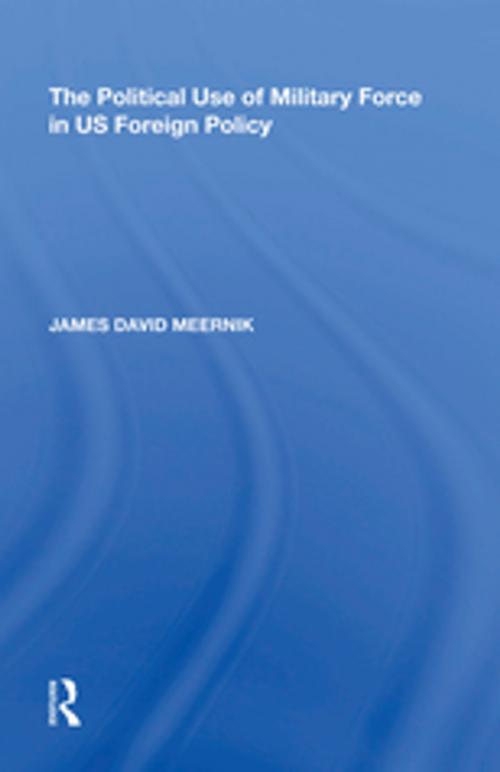The Political Use of Military Force in US Foreign Policy
Nonfiction, Social & Cultural Studies, Political Science, Politics, Arms Control| Author: | James David Meernik | ISBN: | 9781351145701 |
| Publisher: | Taylor and Francis | Publication: | January 18, 2018 |
| Imprint: | Routledge | Language: | English |
| Author: | James David Meernik |
| ISBN: | 9781351145701 |
| Publisher: | Taylor and Francis |
| Publication: | January 18, 2018 |
| Imprint: | Routledge |
| Language: | English |
From the Quasi War with France and the opening of Japan, to the numerous interventions of the 1990s, these events have been situated at the heart of US foreign policy. There are four different explanations as to why the US, throughout its history, has used military force just short of war. Some scholars have suggested that nations use military force on behalf of security objectives. Others have maintained that economic self-interest has motivated many military interventions. Recently many researchers have explored the extent to which the US has used force to promote democracy and human rights, and still more scholars have argued that presidents use limited force for domestic political purposes. Assessing the utility of each of these explanations throughout US history, Meernik employs both historical narrative and statistical techniques to provide a comprehensive account of these important foreign policy events. This engaging, highly informative volume is particularly suited to scholars and students in the fields of international relations, foreign policy, military affairs and history.
From the Quasi War with France and the opening of Japan, to the numerous interventions of the 1990s, these events have been situated at the heart of US foreign policy. There are four different explanations as to why the US, throughout its history, has used military force just short of war. Some scholars have suggested that nations use military force on behalf of security objectives. Others have maintained that economic self-interest has motivated many military interventions. Recently many researchers have explored the extent to which the US has used force to promote democracy and human rights, and still more scholars have argued that presidents use limited force for domestic political purposes. Assessing the utility of each of these explanations throughout US history, Meernik employs both historical narrative and statistical techniques to provide a comprehensive account of these important foreign policy events. This engaging, highly informative volume is particularly suited to scholars and students in the fields of international relations, foreign policy, military affairs and history.















